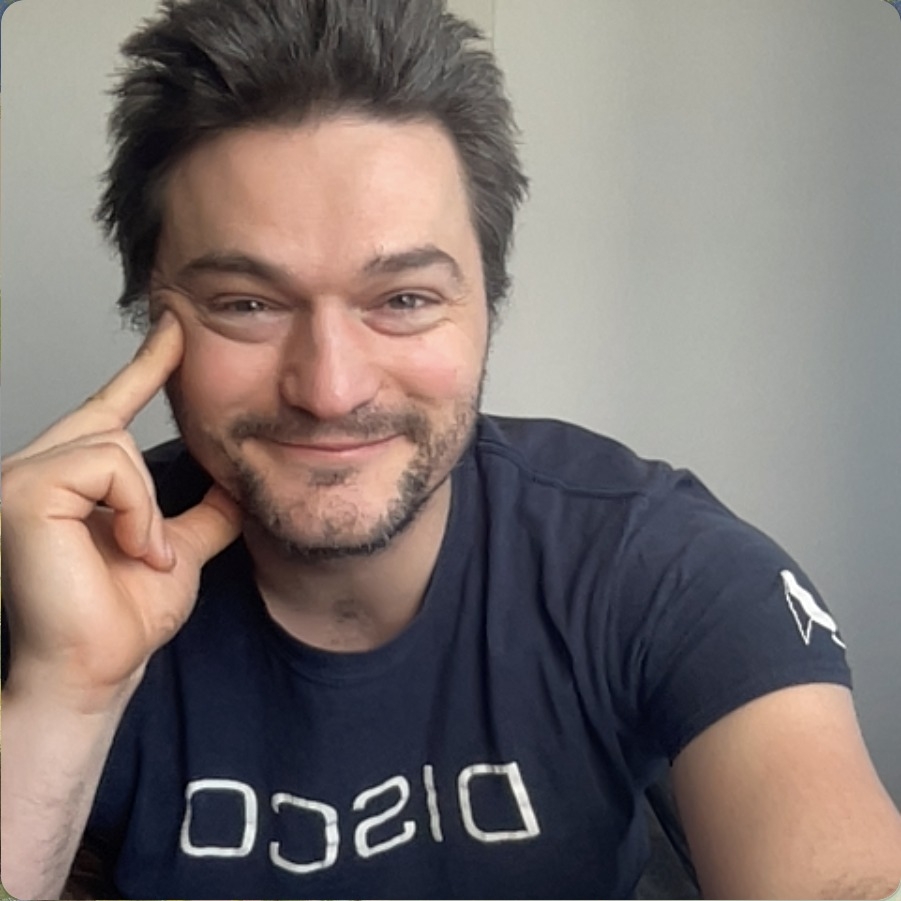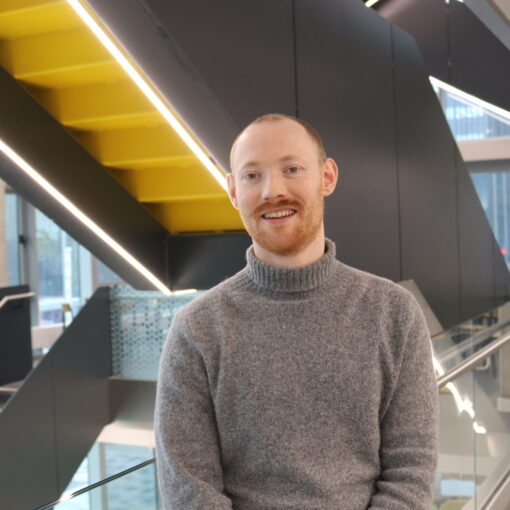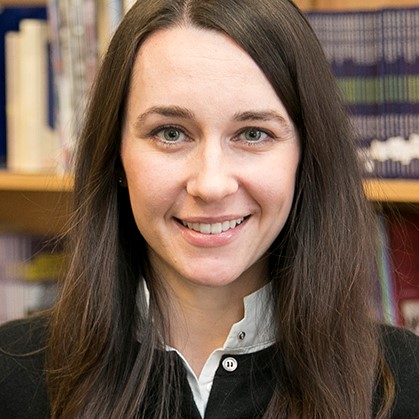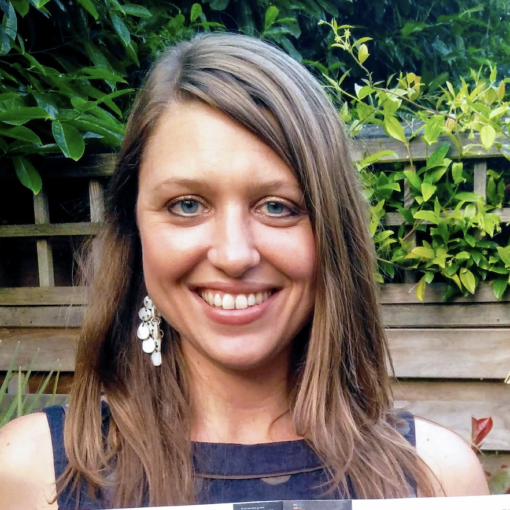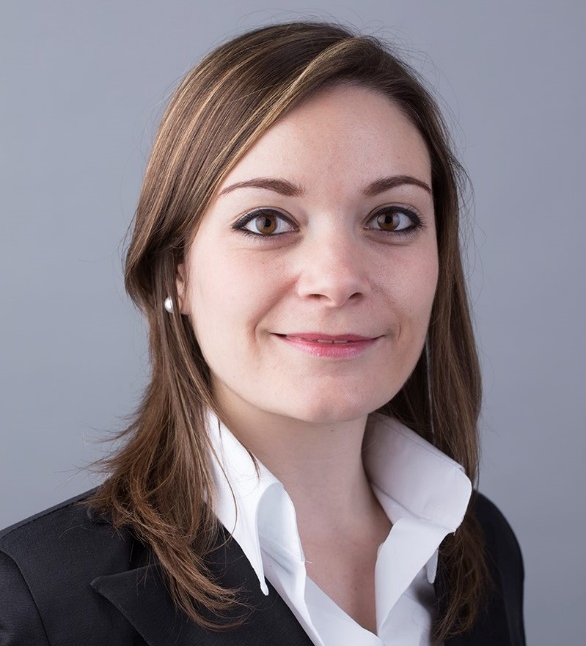Zoology, MA, Cambridge 2007; Veterinary Medicine, MB, Cambridge 2010; MBA, Quantic School of Business and Technology 2020
| Innovation Consultant | |
|---|---|
| Innovia Technology | |
Sector: Innovation and invention
Year entered into a non-academic position: 2011
Job highlight: Getting up to speed in a thousand different areas of science and business.
My research training set me up to . . . spot factual errors and when people are trying to hide the truth behind obscuring procedures or statistics.
Left academia after: Veterinary research degree
This profile is the abridged transcript of a live interview.
What is your background?
I have a degree in veterinary medicine. I then went and did some biomedical engineering training at Cornell in the US and came back to do a business degree, an MBA, in the UK. Those are my official credentials. I’ve had a somewhat circuitous route to my current role. In the middle of my veterinary degree, I did a zoology degree because vets at Cambridge get a chance to throw in another degree in the middle – we do an intercalated year. I finished my veterinary degree, went off to do my biomed engineering training, came back and then I fell into professional sport. I was a track cyclist and was on the UK training squad, which was hard work.
Do you remember what motivated you to move away from academic research or practising as a vet?
I was very, very motivated to stay in zoological research and behavioural research. I did some of my veterinary degree on that, I did a lot of concentration on primates, ended up working as a primate vet – and I was very close to staying in primate work – before heading off into conservation and research. A factor that motivated me to move away from academic research was seeing that the majority of available roles were in some way constrained by political or financial constraints beyond the honest science and were pushing people to come up with answers that won’t necessarily be true. I didn’t enjoy having outside biases beyond those already built into science.
When I returned to the UK – my monkey work was in Nigeria and Cameroon – I ended up getting a role at Innovia, which is an innovation company although the process there is a very scientific one. And because it is exploratory and funded by business you get a lot more freedom to actually follow the truth rather than telling people what they want to hear. At the start of any piece of innovation and research we will go to the client and say: “Look, we may not find what you’re expecting, we may not find something that is beneficial for your business, do you accept this? If you say ‘no’ we’re not going to do the work, so you have to accept that we may not come back to you with what you’re expecting.” That then prompts a very frank and open discussion about what might be true and then allows us to bring back what we find without any worries that somebody gets very angry about it.
Is there anything you miss about academia?
There definitely is. For me, being able to follow research all the way through to its conclusion was very satisfying. When I was working with monkeys, I did some research on behavioural preferences related to the animals’ housing. I worked on questions such as: If you changed housing and enclosure, how would the monkeys behave? Did they show more happy-type behaviours? And I then took that into modifications to enclosure design. I could follow it all the way through to improving welfare, you know, all the way from observation, through building hypotheses, through testing, through my little, tiny bit of stats and through to really improving the world. With the work that I do at the moment it is sometimes frustrating that I don’t get to follow it all the way to the end. I have to hand it back to the client and say: “We found this and this, and that means that we think it is possible for you to do this, this and this, go and do it” – which is lovely and I get to influence big bits of biomedical healthcare and things, but it is sometimes sad to let it go.
With an innovation consultancy like the one I work for, occasionally the clients say – and this is an example here, this is not real nor is it the limit of what we do – but they might come to us and say: “We need a machine that can do this and we don’t know how to do that”, or: “We need our patients to be at less risk at this stage of their healthcare journey how do we do that?”. We would then, based on orthodox models of healthcare, or based on cutting edge lit review, or whatever, say, “Okay the strongest evidence points to this, this, and this as being your way forward”. But wherever there is uncertainty we would say, “Okay the way you work out the truth here, the way you work to resolve this uncertainty, is this sort of experiment. And given that we can expect this sort of outcome that means you need this many people to achieve power. That means you’ll need to do these stats, so if you have the time and money go and do these experiments. If you don’t, we would expect the answer to be here, but you’ll need to test it in these ways.” And at that point they say: “Thanks very much, that’s brilliant, that’s all we need.” And then, if we’re lucky, two years later we hear that they have been successful, and they’ve released a product that improves lives. More usually, we don’t hear anything, which is sad.
Was a particular aspect of your new role surprising to you?
I think I arrived expecting innovation to be more mad ideas on post-it notes and sitting around in a room coming up with crazy thoughts, but the process is more analytical.
I found that the ability to communicate the scientific principle and the logic of the hypothesise-test-analyse-re-hypothesise-test cycle to marketing professionals, or to CEOs, or to people who don’t have scientific background was more relevant than I had anticipated. Communication was a bigger part of the job than I had expected. Now, I have an advantage there as a vet because we get taught communication skills. And a veterinary consultation is kind of like the scientific process in miniature, right? The client has noticed something, you then have a look, come up with your hypotheses, work out the tests in order to test them, do the tests, analyse results, look at whether your hypothesis was correct or incorrect and go from there. So, having been taught to communicate that process to pet owners, I had an advantage to communicate.
There’s nothing that I was surprised by in a negative way. I didn’t arrive thinking it was going to be great and it turned out to be terrible. I may have arrived expecting it to be, I don’t know, more crazy and it was more analytical, which I honestly quite like. I think I arrived expecting innovation to be more mad ideas on post-it notes and sitting around in a room coming up with crazy thoughts, but the process is more analytical, more about asking: what’s the data, how far can we extend that data? Okay, once I level the uncertainty here, what can we do to bring uncertainty down, where can we get more data? So, it’s a much more data-driven process than I anticipated, and I like that.
Can you describe a typical week or day in your job?
I just got back from a week in the States, but a more representative day would include arriving whenever I like, which is nice. There are people in the office from 6:00 AM while the latest people get there at about 11:00 AM. At that point you probably have some time to do personal research for a project: finding papers that pertain to the newest understanding of a particular aspect of health, or if you think there is something interesting or if you have a suspicion that there’s something interesting going on in some aspect of, say, optical coatings, just have a read around all the things that are similar to try extend those learnings into a space where research hasn’t been done yet. Just to get a first set of thoughts around it.
Then there would be a nice lunch, which is provided by the company, is free and is very fun and is also quite a big draw to working there, because you get a lot of people saying: “I’ve just spent the morning reading the wildest paper about piezoelectric bone.” And somebody else goes: “Piezoelectric bone! What do you mean?” And then you just get a long conversation that ends up veering wildly through cosmology and biochemistry and quantum physics.
You end up killing off ideas until you are left with a very small number so that you actually can design experiments and real-world tests to validate your developed hypothesis or strategy.
Then in the afternoon, normally or often, we would come together and say: OK, this is the project team. There are six people, there will be a leader who will not always be the leader on every project. Sometimes you’ll lead them, sometimes they will lead you, it depends on what sort of leadership skill is needed for a project. Then there will be a biologist, a physicist, a designer, an engineer, a behavioural insight person. And then we’d say: “Okay we have just spent the last two days reading about this, our best hypotheses are this, this, and this. Are these the right ones to test in order to create a product that actually can solve the problem in, say, reducing medical risk? Yes, because it interacts with the right stage of the surgical pathway / No, because it can’t be manufactured, that company doesn’t have the skill to manufacture it – whatever.” You end up killing off ideas until you are left with a very small number so that you actually can design experiments and real-world tests to validate your developed hypothesis or strategy. So that’s taken 3 hours leaving you at about 4:00 PM.
Now, if you want to go home, you can go home. If you want to stay and work and learn more or craft what you’ve learned and the discussions into a document that can be easily understood by marketing or CEOs, you get to exercise your writing and your design capabilities and your communication. You then hang around until, I don’t know, I normally leave at half four. I don’t like staying late. And then you go home. For me that’s a nice 10-kilometre cycle ride along a cycle way, which I very much enjoy. And then rinse and repeat, on and on. That is interspersed with trips to see clients to watch products being used, learn more about patients, talk to patients, get to know why things aren’t working. No day is quite the same, but I have given you my best example of a typical day.
What is the workplace culture like? Please include comments on work-life balance, flexibility, remote working.
[The clients] understand that they are asking unusual demands of us and therefore I think it is taken for granted that we will have unusual freedoms.
Some of us are working remotely. We have the option. I prefer to go to the office because the food is good and the conversation is nice and it’s comfortable and well-lit and there’s a nice view, but you don’t have to. This is not uncommon in consultancy given that we are often asked to have a call at 9:00 PM with a client in California or have a call at 5:00 AM with a client in Singapore. They understand that they are asking unusual demands of us and therefore I think it is taken for granted that we will have unusual freedoms.
Did you face any challenges when starting out in your role?
You are invited to speculate and that’s an uncomfortable thing for people who have been evidence-based their entire professional life.
You’re being asked for your opinion on something that you are not an expert in, and that is scary. You’ve got a few weeks to try to get your head into a new field to assess a body of literature, work out where the holes are, what it is that people have not been paying attention to, work out what’s new and what’s likely to be true, and work out what you think the strongest evidence supports. And you need to try and do that in like three weeks, four weeks. And then people are going to ask you what you think needs to happen next. And that’s scary. Now, clearly the people who are asking you know that you’ve only had three or four weeks and so they will take the answer as ‘something a very clever person who has had three to four weeks to think about this comes up with’ and therefore they should rely on it for coming up with ideas but not invest $100 million without doing more research. They know they shouldn’t put this in front of patients without testing it. So, you are invited to speculate and that’s an uncomfortable thing for people who have been evidence-based their entire professional life. The job attracts people who want to learn something new quite frequently, but it is also difficult for people who are used to saying ‘I know this’ and are now forced into starting to say ‘I think this’.
Do you have any advice for current graduate students and postdocs considering a career outside of academia?
Stay curious. Don’t just read your pages of Nature, read the whole thing. Appreciate the links between your field and other fields. I think this is a really important point if you’re ever looking to move beyond your research area. Appreciate the links between it and everything else because those will be the links you follow. Also, with consultancy it is very much a business art, so understanding profit, loss, stuff like that, and the economics of the situation is important. I’m not saying go and do an economics degree. I’m saying just consider why people do things, why they use this, why that product has been put on the shelf. You only have to do it for a week, and you start to look at the world very differently, which is useful.
Can you recommend any relevant resources, organisations or events that might help somebody new to the sector find out more about it?
Any consultancy worth working for will be interested in people with different backgrounds because if they are not interested in people with different backgrounds, it means that they have a very narrow set of challenges. You can use that to your advantage and say ”I’m from a different background, would you mind inviting me along to, you know, have a conversation and see your office?” We have people ask that all the time and we have people come and join us at lunch. We have confidential and non-confidential areas in the office, and in the non-confidential areas you can eat food, have a chat, see what the vibe is like. I think I would strongly recommend that any scientist, any researcher of any flavour, really, who is considering consultancy put that test to a potential employer: “I’m something different, is that valuable to you? Is it valuable enough for you to welcome me and talk to me?” If it’s not, then they probably don’t do the sort of work you enjoy doing anyway.

